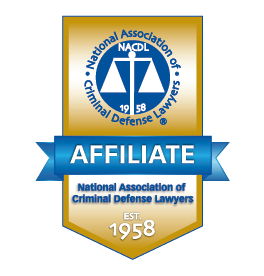On October 11, 2017, Senate Bill 393 was signed into law by Governor Jerry Brown. This new bill has made sealing and destroying, your arrest record far more accessible. California Penal Code 851.87, now allows you, as a matter of right, to have your arrest record sealed if you meet any of the following qualifications:
- You were arrested, but did not have a criminal case filed against you;
- You had a criminal case filed against you, but it was later dismissed;
- You had a criminal case filed against you, but were found not guilty at trial;
- You had a criminal case filed against you, you were convicted, but the conviction was later overturned on appeal; or
- You had a criminal case filed against you, but you successfully completed a deferred entry of judgment program or diversion program.
However, if you have a history of convictions, or arrests, for the following types of offenses, your record will not be sealed as a matter of right:
- Domestic Violence;
- Elder Abuse;
- Child Abuse.
Even if your record cannot be sealed as a matter of right, the court still has the discretion to seal your record if you fall into this category.
If you, or a loved one, is looking to have their record sealed and destroyed, contact one of our experienced attorneys today. At the San Diego Record Expungement Attorney Law Firm, our attorneys know what it takes to get your record sealed.
THE BENEFITS OF HAVE YOUR ARREST RECORD SEALED PURSUANT TO PC 851.87
Your criminal, and arrest, records are public record. This means potentially anyone can access them. Namely, prospective employers and background checking agencies will have access to these records. However, by sealing your arrest record, it is no longer easily accessible by the public (there are limited exceptions that will allow some agencies to continue accessing the records). Therefore, sealing and destroying your arrest record will greatly increase your chances of finding a new job, or advancing your current employment.
THE RATIONALE BEHIND SB 393
Before SB 393 passes, those who were arrested, but never convicted, found themselves in a completely unfair disadvantage. Even though it was never proven that they were guilty of any crime, the arrestee was still required to prove why their arrest record should be sealed. This was often a difficult task, and led to many innocent citizens have unnecessary arrests on their criminal record. These records can be used against them during the hiring process, even though they may have been completely innocent of any crime.
Under SB 393, the burden of proof is shifted back to the prosecution. In other words, the prosecutor must prove why the arrest should remain on your record, even though it did not lead to a conviction. This is what is meant by having your record sealed as a matter of right.
ELIGIBILITY FOR PC 851.81
Under PC 851.87, you will be eligible to have your record sealed and destroyed, if you fall into at least one of these categories:
- You were arrested, but not charged with a crime, and the statute of limitations has run for the prosecution to file charges;
- Charges were filed, but they were later dismissed;
- Charged were filed, but you were found to be not guilty;
- You were convicted of the offense, but your conviction was later reversed on appeal;
- You successfully completed a diversion program or deferred entry of judgment program.
WHAT DOES IT MEAN TO HAVE YOUR ARREST RECORD SEALED AS A MATTER OF RIGHT?
Basically, this means that the burden of proof is shifted to the prosecution (usually the District Attorney’s Office), to prove why your record should not be sealed. Prior to SB 393, you would have had to make a showing as to why your record should be sealed. Now, once you have shown that you fall into one of the categories listed above, the prosecution must make an argument to the court to prove why not to seal your record. Because your arrest did not lead to a conviction, this can be difficult to do.
WHO IS NOT ELIGIBLE TO HAVE THEIR ARREST RECORD SEALED IN SAN DIEGO COUNTY?
We often get calls from clients who are wondering whether or not their records can be sealed. If you fall into any of the following categories, it is important to contact one of our attorneys who can determine if you qualify:
- If the crime you were arrested for does not have a statute of limitations;
- If you were arrested for a crime, and have not been charged, but the statute of limitations has not yet run; or
- If you were not charged with a crime because you intentionally fled the jurisdiction where the offense occurred.
RECORD SEALING WITH A PATTERN OF DOMESTIC VIOLENCE
Additionally, you will not be able to have your record sealed as a matter of right if your record reveals a pattern of the following types of crimes:
- Child Abuse;
- Elder Abuse; or
- Domestic Violence.
A pattern requires that you have at least two incidents on your record for the offenses listed above. However, keep in mind, that you still may be able to have your record sealed, even if your record exhibits a pattern of these offenses. The difference is that your record will not be sealed as a matter of right, and you will have to present an argument as to why it should be sealed. In these cases, the court will consider a number of factors when making its decision.
WHAT CAN YOUR SEALED RECORD STILL BE USED FOR?
Sealing your record, destroys it, and makes it unusable for nearly any purpose. However, there are limited situations in which the sealed record can still be used. For example, one law enforcement agency can disclose the arrest record to a different law enforcement agency. Additionally, the record may be able to be used against you if you’re are being prosecuted for a subsequent offense.
WHEN DO I HAVE TO SEAL MY ARREST RECORD BY?
Before the passing of SB 393, you only had to years from the date of the incident to have your record sealed. However, under the current law, there is no specific deadline. Keep in mind that while there is no deadline, the law is still very new, and has not been thoroughly tested in the court system. Therefore, it is strongly recommended to have your record sealed as soon as possible. The best time to seal your record is right after the statute of limitations has run. Our attorneys can assist you in determining the right time to file your petition.
THE PROCESS OF SEALING YOUR ARREST RECORD
FILING THE PETITION
The process generally begins by filing a petition with the court. The petition should be filed at the court in which the case filed, or would have been filed.
Both the prosecuting agency and the arresting agency must be served with a copy of the filing.
It is best to have your attorney draft the petition for you, as there is a lot of important information that must be included. Some of this information may be difficult to obtain and will require your attorney to contact the court and arresting agency.
THE HEARING
If the petition is contested by either the District Attorney or the arresting agency, then a hearing will be held in front of the Judge. At the hearing, the Judge will have a lot of discretion in determining whether or not your record should be sealed. Your attorney will be able to provide arguments on your behalf as you why sealing your record would be in the interest of justice.
HOW LONG DOES THE PROCESS OF SEALING YOUR RECORD TAKE IN SAN DIEGO COUNTY?
Typically, it will take about ninety days, from the date that your petition is filed, for your record to be sealed. Once the court has issued the order to have your arrest record sealed, the court will notify the arresting agency and the department of justice.
WHAT IF MY RECORD IS SEALED, BUT IT IS LATER RELEASED?
If you have sealed your record, and it is later disseminated, the agency that released it could be civilly liable. Improper dissemination could be punishable by a fine of up to $2,500.00 per violation. The Attorney General, a District Attorney, or a City Attorney can all enforce the violation.
WHAT IF I WAS CONVICTED, AND AM NOT ELIGIBLE TO HAVE MY RECORD SEALED?
If you were convicted, you may not be able to have your record sealed. If this is the case, it is still important that you contact one of our attorneys, as we may be able to assist in other ways. For example, an expungement is a great way to have a conviction removed from your record.
SEALING YOUR JUVENILE RECORD
At the Record Expungement Attorney Law Firm, we are often asked whether a juvenile record is automatically sealed when the defendant turns 18. For your juvenile record to be sealed, the following criteria must be met:
- You are currently over 18 years old (some exceptions apply);
- Your juvenile conviction was not for a crime of moral turpitude;
- Your juvenile conviction was not for an offense deemed to be particularly serious.
In contrast to what many people believe, your juvenile record does not automatically seal once you turn eighteen. You must obtain a court order indicating that your record has been sealed.
There are countless reasons to have your juvenile record sealed. You will give yourself a better opportunity to get the job you desire or to get into the school you are looking to attend. Don’t let a mistake you made when you immature and young be used against you for the rest of your life.
GUBERNATORIAL PARDON
Sometimes clients come to us look to have their records expunged, but they may not be eligible for a dismissal under PC 1203.4. However, our firm is equipped to help you through any alternative means to clear your record. One of these alternative means is obtaining a pardon from the governor. The benefits of a governor’s pardon can include:
- Restoring gun rights;
- Possibly ending the requirement to register as a sex offender;
- Increased job opportunities;
- Increased opportunities for professional licenses;
- Impact on immigration / naturalization.
Generally, you should wait about 7 to 10 years from the time you successfully complete probation or parole before applying for a gubernatorial pardon. In evaluating your case, the governor’s office will want to see “exemplary behavior” since your conviction. Generally, this means that you should not have been convicted of any significant new crimes.
CERTIFICATE OF REHABILITATION
A second alternative is a Certificate of Rehabilitation. This is a court order stating that you have been rehabilitated since your offense and that you are now a law abiding citizen. The benefits are very similar to those of the gubernatorial pardon.
You may be eligible for a Certificate of Rehabilitation if:
- You are no longer on felony probation;
- You have lived in CA for the past five years;
- You have not been incarcerated since the completion of your sentence;
EVEN IF YOU WERE NOT CONVICTED OF A CRIME, AN ARREST ON YOUR RECORD CAN CAUSE A NUMBER OF SETBACKS. DO NOT MISS OUT ON AN OPPORTUNITY BECAUSE OF AN UNNECESSARY ARREST ON YOUR RECORD. CONTACT THE SAN DIEGO RECORD EXPUNGEMENT ATTORNEY LAW FIRM, AT 619-577-4081, TO HAVE YOUR ARREST RECORD SEALED.
Even if you were not formally charged with a crime, you may be haunted by the record of your arrest. Don’t let a wrongful arrest be the reason you miss out on a new career or opportunity. Our attorneys know the process of sealing your record so that it can no longer be used against you. If a case did not file, your case was dismissed, or you completed a diversion/DEJ program, contact our office today to begin the process of sealing your arrest record.









